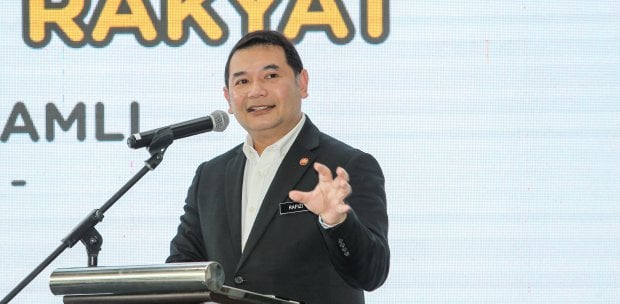The transitioning from a socio-economic policy of income-based categorisation such as B40, M40 and T20 to a net income-based approach can better reflect the financial realities of the people.
However, Malaysians believe the government's new measure isn't a "silver bullet" and that more needs to be done to prevent people from being stuck in the middle-income trap.
Akmal Ferdaus, in his 30s, and from Petaling Jaya, is the sole breadwinner for his family of four.
The factory worker believes that while many like him are classified as belonging to the M40 category, they will fall into the B40 category if household net income is taken into account.
This new method, he said, would provide a more realistic view for those in the low- and middle-income categories.
"As it is now, many in the M40 category are often left out in terms of subsidies, aid, initiatives and even tax rebates.
"A net income approach could be more effective in identifying those in need and, as such, alleviate their financial woes.
Akmal said a revamp of how income categories were approached would help people fit into the proper tax brackets and, in turn, reap the much-needed benefits associated with their income.
"With the proper tax bracket associated with the income, it will allow these low- to middle-wage earners to benefit from the extra cash they have.
"I believe that the extra cash will be recirculated into the economy. I would jump at any opportunity to buy items from local businesses as I know that it will benefit everyone in the end."
He was commenting on Economy Minister Rafizi Ramli's announcement on Friday that the government would consider a new strategy to implement targeted RON95 fuel subsidies, based on households' net disposable income from data gathered
from the Pangkalan Data Utama (Padu) socio-economic database.
Rafizi said the approach represented a transition in the government's socio-economic policy, moving away from income-based categorisation.
He said the transition from an income-based to a net disposable income-based approach was expected to provide a clearer picture of households' financial standing, allowing the government to tailor programmes and subsidies accordingly.
Loo Soon Kau, a senior engineering manager from Penang, said while the new mechanics of income categorisation could better reflect one's financial position, the government should be wary of attempts to manipulate data.

He said the net income approach would allow a more targeted and fair support of those in need.
"This clearer understanding of the financial situation of a household can help the government to provide support that is fair and targeted, reducing disparities.
"However, I am concerned over the accuracy of the data," he said, adding that unscrupulous parties may falsify information to take advantage of benefits meant for those who actually needed them.
A business owner from Kuala Lumpur, who wanted to be known only as Raj, cautioned that while the net income approach is a good first step, it would not fully solve the issue of the middle-income trap.
He said even with the current income categorisation, middle-income households were still being significantly taxed.
"Even with the current income categorisation, those in the M40 category are being significantly taxed on top of having to support their families.
"What the government should look into is how to reduce the taxation on the people of the middle class."





